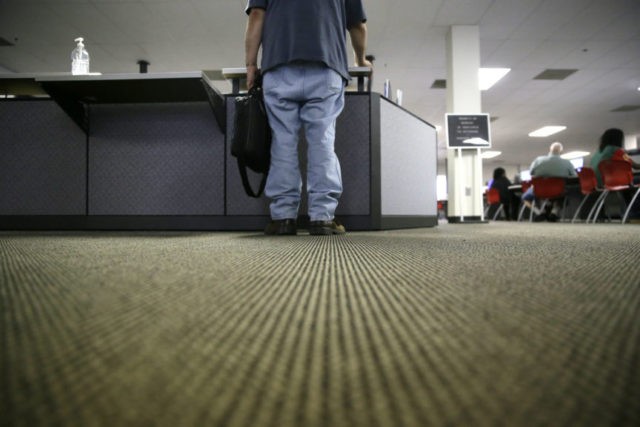Job losses are more than just an economic drag. They are literally depressing.
New research shows that “severe depressive symptoms” are partly a consequence of the loss of employment and subsequent “economic inactivity.” The longer the period of unemployment, the greater the incidence of depression, according to a study of Australian labor market data by Deborah A. Cobb-Clark School of the University of Sydney.
Cobb-Clark’s study shows that joblessness weighs on men more than women. Men’s mental health starts to deteriorate as soon as they exit the labor market. Women are apparently made of sterner stuff: their mental health only worsens after they’ve been out of the labor force for a period of time.
Unemployment can lead to self-perpetuating downward spiral. The research also finds that severe depressive symptoms lead to economic inactivity.
“Individuals are less likely to be labor force participants or employed if they experience severe depressive symptoms. Men’s probability of being unemployed rises dramatically with the onset of depressive symptoms; women’s unemployment is increased by protracted depressive symptoms,” Cobb-Clark writes.
In other words, unemployment leads to depression and depression leads to unemployment.
This may offer a possible hint to the findings of a separate investigation recently undertaken by researchers at the Federal Reserve Bank of New York. Analyzing consumer survey data collected by the Fed over the last few years, the research found that it is far harder to get a job when you are unemployed than when you are employed.
“[E]ven though unemployed workers search about seven times as hard as the employed, they only generate about twice the number of offers. Thus, searching while unemployed is much less effective in generating offers than searching while on the job,” they write.
Of course, if the job-searchers are suffering from depression and other signs of deteriorating mental health, it would make sense that employers are less likely to hire them. Compared to their employed peers, the unemployed would simply be less attractive hires.
And, of course, it’s probably harder for unemployed men to find romantic success since one-in-five women say they won’t date a man who earns less than they do.
So an unemployed man would be unattractive to both potential employers and mates. No wonder that is depressing.

COMMENTS
Please let us know if you're having issues with commenting.